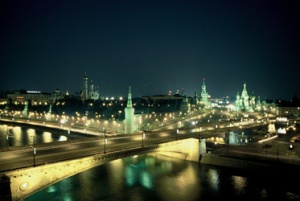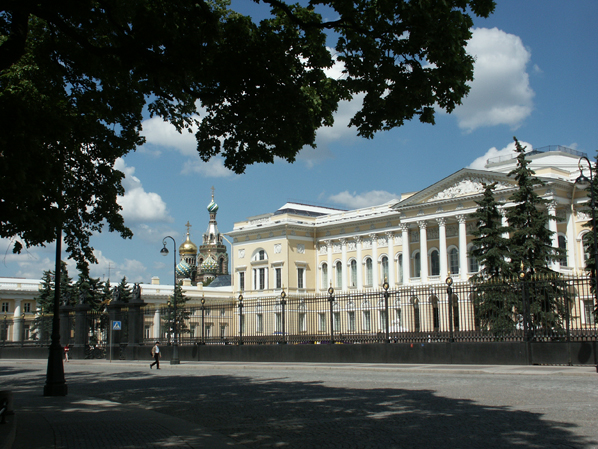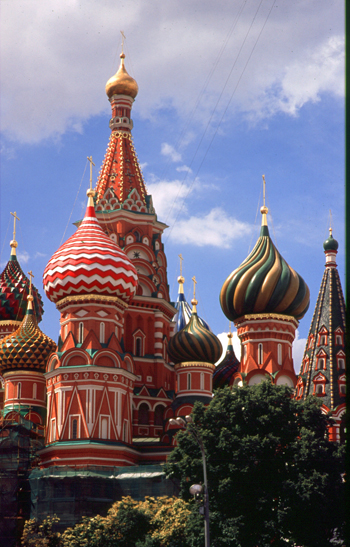Russia rises for its greatest sporting challenge

Having won hosting rights to the 2018 FIFA World Cup, Russia is investing billions to bring its infrastructure up to FIFA standards. However the possible legacy gains are unlimited, as Breaking Travel News finds out.
Eastern Europe has never hosted the World Cup, but the decision by the FIFA executive committee to award hosting rights to Russia for the 2018 tournament has been heralded as the region’s greatest accomplishment in decades.
Russia represents an exciting new horizon for FIFA – a football “white spot” with millions of new hearts and minds, and the potential to create a great legacy after the World Cup, including great new stadiums.
Russia’s economy is also large and growing, and its football market is developing rapidly. Hosting the 2018 World Cup marks not only a new football territory but also an untapped tourism destination.
Inbound Tourism
For years, the need to obtain a visa, lack of affordable and quality hotels, and poor transport infrastructure has hindered Russia’s inbound tourism market.
However with the 2018 World Cup now in the bag, Russia has a once-in-a-generation opportunity and benchmark to create a lasting legacy from the World Cup.
For starters, president Dmitry Medvedev has promised to scrap visas for holders of World Cup tickets, which could also pave the way for smoothing entry restrictions for international visitors in the future.
Russia’s tourism ministry said it would promote Intourist, the country’s biggest tour operator acquired by Thomas Cook in a $45m deal in December 2010, as exclusive manager of the event.
As part of its bid strategy, the Russian government also promised that football fans would be able to travel for free between host cities – the distance between the western most host (Kaliningrad) and the most eastern (Yekaterinburg) is 2,500 kilometres.
This makes it essential that Russia’s dilapidated transport infrastructure, which remains largely unchanged from the Soviet era, is upgraded.
Hotels too need upgrading and building. Many existing properties are outdated and overpriced. So as well as renovating, new hotels must be built to address the bed shortage.

Moscow will play host to the final of World Cup 2018
City.Mobi
The language barrier – and different alphabet – will prove a challenge for fans so English-based mobile guides such as City.Mobi will be essential.
During the South Africa World Cup, City.Mobi provided detailed information about accommodation, attractions, dining, city guides, and transport information tailored for users on the go, and includes host cities Durban, Port Elizabeth, Bloemfontein, Johannesburg, Pretoria, Nelspruit, Polokwane, and Rustenburg.
At FIFA 2018, City.Mobi will be providing similar services for key host cities Moscow, St Peterburg, Novgorad.
Infrastructure
The World Cup will be played in 16 stadiums in 13 cities – all these will need to be either renovated or built from new. This will cost $3.8 billion, according to an official forecast.
Some estimates suggest that at least twice that amount could be needed to upgrade most airports, develop high-speed rail services and build roads and hotels.
Olympic Experience
Russia’s progress in preparation for the 2014 Winter Olympics in Sochi will not have gone unnoticed by the Fifa Exco.
Since it was awarded the games in 2007, Russia has made impressive infrastructure improvements as it takes on what has been dubbed “the most expensive and challenging project in its history”.
Telman Ismailov, chairman of Russia’s biggest property developer AST, is building almost ten percent of the hotel space needed for the Olympics in Sochi.
Plans include Russia’s largest hotel complex. The project will cost Ismailov’s AST Group more than $1 billion. The 24.6 hectare Sodruzhestvo complex will have 5,500 rooms. The group will also build a 150-room hotel in the Imeretinskaya valley near Sochi on a 0.98 hectare site.

Ismailov is also the owner of Turkey’s Mardan Palace, voted “World’s Leading Luxury Hotel” at the 2010 World Travel Awards, Europe’s most expensive resort, costing $1.65 billion to build.
Other Russian oligarchs have been tapped by the government to fund the Olympics, and Vladimir Putin has said they should also help foot the bill for the World Cup.
Roman Abramovich, the billionaire metals tycoon and owner of Chelsea football club, said he was ready to become a partner to the authorities in preparing for the World Cup.
To implement all the projects, the government will also need to invest vast amounts of its money and effort. As with the 2014 Winter Olympics, full state guarantees will be given to the World Cup project.
Like South Africa, Russia’s eventual financial success – or failure – in organising and hosting the tournament might be evident only years after it is over.
Sport Tourism
The World Cup 2018 prize for Russia is expected to deliver a windfall in travel and tourism receipts. Sport Tourism is travel industry’s fastest growing sector, and contributed an astonishing 14 percent of overall travel and tourism receipts in 2010, according to WSDE Sport Tourism Expo, the only global exhibition and business forum dedicated to showcasing the full spectrum of Sport Tourism related products and services.
At a time when some traditional tourism trends are in decline, Sport Tourism continues to flourish and is set to grow exponentially in the next decade.
Yet the complex mechanics of Sport Tourism have not yet been fully understood or realised. The annual WSDE Sport Tourism Expo aims to present the future business deals and source new contacts and markets, but also to gain invaluable insights from the advanced knowledge of market leaders.
WSDE Sport Tourism Expo will take place in Bangkok, capital city and business hub of Thailand from September 27th-29th 2011.

